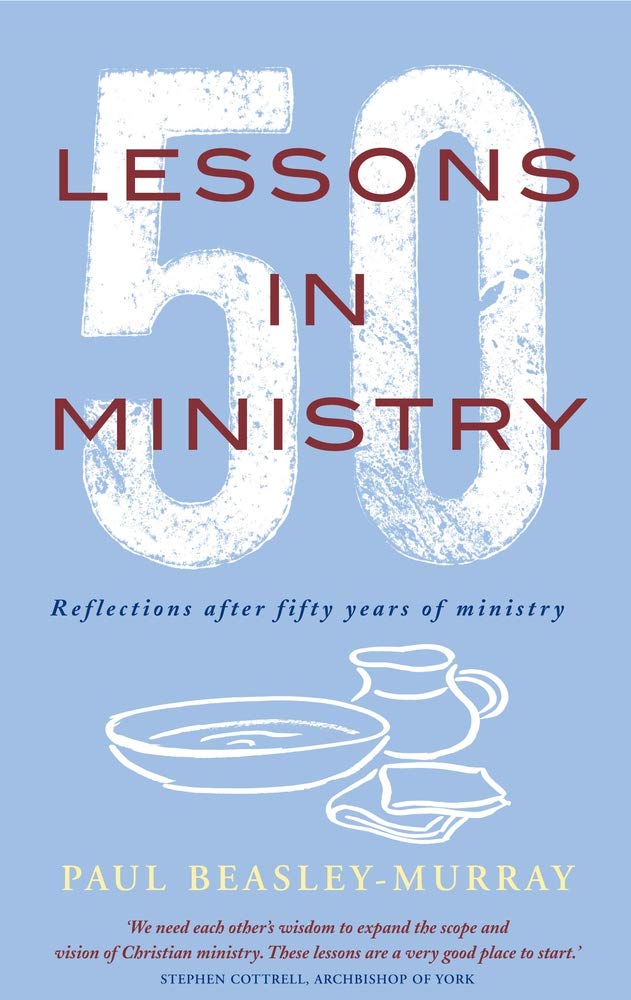
Nothing much stands still these days except perhaps weekends in Lockdown. I have been to Church (online of course) and my usual catch up with friends or trip out of Salisbury have been properly curtailed. The opportunity to catch up on some reading before my mandatory exercise.
Walking requires some decisions. Where am I now and where do I want to get to? Shall I venture into a new pathway and destination – if so, what map will give me my bearings? How many steps will satisfy my FitBit and the daily target that I have set?
Ministry like all work requires such support to offer bearings, encouragements, warnings and wisdom. It will always need vision and a theological generativity that might enable us to navigate the terrain especially in these days of all days. This is part of our work at Sarum College (https://www.sarum.ac.uk/ministry-training/ordination-and-lay-training) and we must always be asking the community of formation how best we equip a new generation of lay and ordained ministers for ministry. They need reliable maps and empowering theology. They may need some versatility in not being too constrained by constrained by the map! Getting lost can be liberating and lead us into new horizons. I wonder if I asked our students what Fifty Lessons in Ministry might look like for them what their chapter headings would reveal about the gaps in our education ?
One further thing before I launch into the book. In this day and age where both society and church are so dismissive about older people ( as if their very existence is a threat to our life and growth) Paul Beasley-Murray reminds us of the freedom and wisdom that older age and experience can bring. This is a richer and livelier book that reminds us of the marathon which is ministry and the ways in which we are transformed by our mistakes. Age brings a maturation of perspective and a freedom of spirit and these virtues are all characterised in these fifty short chapters !
There is no ‘sequence’ and they are richer for the unpredictability of the positioning. There are themes, and (of course) clear convictions expressed with lucid groundedness in faith, Scripture and experience. So how did these lessons go ? How might these pieces shape our approach to ministry ? Here is what Paul shows us –
First we are human beings that are made to relate, to listen, to connect and to share. Good pastoral care is grounded in love (lesson 9) ; we need to get away from our computer screens and Visit (lesson 10) and discover that everyone is wounded (lesson 11) and needs affirmation and encouragement (lesson 12). Older people matter too (lesson14). In all of this we need to remember names (lesson 3).
Second we need to take Church seriously ! Its good and life giving as we remember that buildings matter ( lesson 25) and that each Church have distinctive characteristics ( lesson 22). Big Churches and small churches have their charisms ( lessons 23 and 24). They are also challenging to work in and are fraught with full of power games and resistances to change (lesson 41). We all need to get used to the reality that change is here to stay ( lesson 29).
Third – we are made for worship which is both an art and science ( lesson 16) where preaching is a lifelong skill that needs both structured simplicity and a good ending (lessons 19 and 20). There is a wonderful lesson on spirit led prayer where the reader is advised to prepare them well in advance (lesson 17). The Eucharist and Baptism are affirmed as central parts of the life of the Christian community (lessons 21 and 18).
Fourth – mission and evangelism can never be packaged, controlled or quantified ( lessons 5, 7 and 6). It is unpredictable and invites us all into developing a clear vision which can be communicated and understood (lessons 32, 30). We are also invited into consider the nature of leadership as making things happen, empowering others, committing to the long term and working well with others ( lessons 27, 38, 28 and 40).
Finally we need to look after ourselves and our families and friends in this calling to be professional. It is fine to feel tired on a Monday and we need to support of a soul friend ( lessons 34, 44, 45, 42 and 43). Ongoing learning is part of staying awake ! This is a vision, clearly articulated in these theological reflections, that reminds us all of the demands and rewards of ministry rooted in the grace of God.
There is a wonderful restlessness to all these 213 pages as the author unpicks and probes and digs deep. It is an excellent guide to ministry which I shall be adding to our reading lists here at Sarum. I may ask students in their reviewing these ‘lessons’ to consider what they think might be missing here! What questions and lessons remain for us in ministry ?
But that is for another day.

